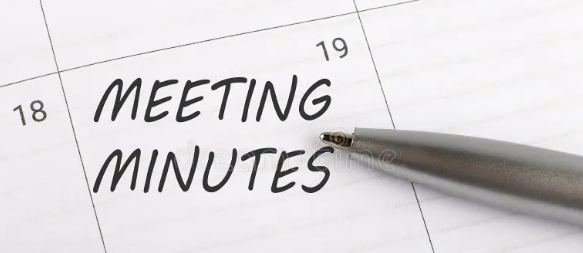The information contained in this article is not intended as legal advice and may no longer be accurate due to changes in the law. Consult NHMA's legal services or your municipal attorney.

Pursuant to RSA 91-A:3, III, minutes of non-public sessions “may be withheld” (commonly called “sealed”) “until, in the opinion of a majority of members, the [reason for withholding the minutes] no longer apply.” The question that naturally arises out of statutory provision is what obligation the public body is under to evaluate whether the reason for withholding the minutes continues to exist.
In the past, the practical reality was that sealed minutes would either be reevaluated upon the receipt of a records request from someone or sealed for a certain amount of time (subject, presumably, to a reevaluation upon the time coming to a close). Yet, RSA 91-A:1 stated that the “purpose of this chapter is to ensure both the greatest possible public access to the actions, discussions and records of all public bodies, and their accountability to the people.” How, then, could the best option be to wait until the public decided that it wanted access for those records to become public? A better practice would be for the government to take proactive steps to ensure that minutes are withheld for only as long as the circumstances leading to their withholding apply.
In 2023, HB 321 was introduced to address the discrepancy between best practice and common practice as the result of a coalition of stakeholders coming together to discuss where the right-to-know law could be improved. In short, HB 321 adds statutory language that tells public bodies to either develop their own process to review minutes or to follow a statutorily created process.
In developing their own process, public bodies have wide discretion in deciding how to structure their review of sealed minutes. Some may choose to assign one board member the task of reviewing the minutes and making a recommendation, others may choose a subcommittee, still others may choose to review all sealed minutes as a whole committee. Similarly, boards may choose to review all sealed minutes or only some each year. Thus, a board may stagger the review process so that it does not interfere with other board business.
In the absence of adopting its own process, a public body must follow the statutorily created process. That statutory process requires a review of sealed minutes “no more than 10 years from the last time the public body voted to prevent the minutes from being subject to public disclosure.” The statutory process also includes a 10-year grace period. In other words, if your board has minutes that were sealed more than 10 years ago and your board hasn’t reviewed them since, you have 10 years after the law goes into effect to review those minutes and decide whether to keep them sealed or not.
Public bodies ought to take advantage of the 10-year grace period and start evaluating what, if any, review process they would like to develop. Once that determination has been made, it is important for boards to follow those processes and teach new board members about the legal requirement to review sealed minutes and the locally adopted process designed to comply with that requirement.
While, in most cases, there is no penalty for disclosure of information that could be withheld from public disclosure as our law begins by assuming that any information held by the government is subject to disclosure, there are a handful of circumstances where disclosure is not in the best interests of anyone. Private information, such as social security numbers, statutorily protected information, such as whether someone is receiving municipal welfare, and information that, if disclosed, could result in harm to persons or property, such as information about access points to public water systems, ought to continue to be carefully protected from disclosure. The best way to do that is to ensure that future boards need not rush through a review process to protect that type of information from becoming public. Instead, starting now can ensure that the citizens of the state of New Hampshire can “know what the government is up to” while also ensuring that information that was rightfully protected from public disclosure and ought to continue to be protected from public disclosure remains protected.

Natch Greyes is the Government Affairs Counsel with the New Hampshire Municipal Association. He may be contacted at 603.224.7447 or at governmentaffairs@nhmunicipal.org.